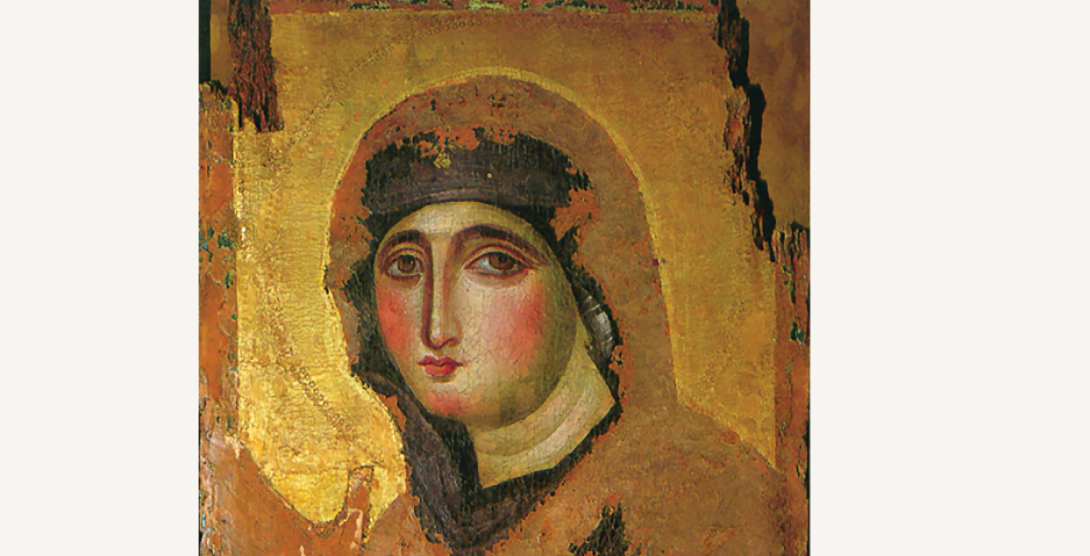In late August of 1959, Chiara Lubich invited the participants–and invites us today–to look beyond the borders of our nations and to love the other’s nation as our own, as a logical extension of the new commandment of mutual love.

© Photo by wikipedia.org
If one day all people, not as individuals but as nations, would learn to put themselves aside, to put aside the ideas they have about their own countries, their kingdoms, and offer them as incense to the Lord, the king of a kingdom not of this world, the guide of history, and if they would do this as the expression of the mutual love between states that God asks for, just as he asks for mutual love among individuals, that day would mark the beginning of a new era. For on that day, just as Jesus is present among two who love each other in Christ, Jesus will be alive and present among peoples, given finally his proper place as the one king, not only of individual hearts but of nations: he will be Christ the King.
Christian peoples, or their representatives, must learn how to immolate their “collective” egos. This is the price. Nothing less is asked of each of us in order for our souls to be consumed in unity. Now is the time for every people to go beyond its own borders, to look farther. Now is the time to love the other countries as our own, to acquire a new purity of vision. To be Christians it is not enough to be detached from ourselves. The times we live in demand from the followers of Christ something more: the awareness of Christianity’s social dimension, which not only builds up one’s own country according to the law of Christ, but assists in the building up of all other countries as well, through the universal action of the Church, and through the supernatural vision given to us by God the Father, who from heaven sees things quite differently from the way we do
We need to live the Mystical Body of Christ in such an excellent way as to translate it into the mystical body of society.
History speaks almost exclusively of wars, and as children in school we are practically made to learn that wars are good and holy, almost the safeguard of our homelands. This may be so and sometimes it was so.
But if we hear echoing in our souls the appeals of the Popes, like Pope Pius XII, we will recognize how, for the sake of humanity, they dreaded war and how they reached out to government leaders, whether they were asked to or not. They strove to appease anger and overcome vested interests in order to avoid the disaster of war that destroys everything, while with peace everything is gained.
For history is a series of fratricidal conflicts among peoples who are members of one world-family, whose lands were given to them by the one Master of the world, to live on and to cultivate.
He blesses peace because he is peace in himself. We see how one by one the Lord is conquering the hearts of his children of all nations and tongues, transforming them into children of love, joy, peace, ardor, and strength. And we hope that the Lord may have mercy on this divided and confused world, on peoples closed within their shells contemplating their own beauty—the only beauty that exists for them (though it is both limiting and unsatisfying).
They strain to hold on to their treasures against all odds, the very treasures that could help other peoples who are dying of hunger. May the Lord cause all barriers to fall, and allow love to run uninterrupted through all lands, flooding them with spiritual and material goods.
Let us hope that the Lord brings about a new order in the world. Only he can make humanity a family and cultivate the unique characteristics of each people so that the splendor of each, placed at the service of others, may shine with the one light of life. This light of life in making beautiful each earthly country will make it the antechamber of the Eternal Country.
It may seem like a dream. But even now—apart from the fact that if the relationship among Christians is one of mutual love, then the relationship among Christian peoples cannot but be one of mutual love, because of the unchanging logic of the gospel—there exists a bond that powerfully unites peoples to one another. It has already been proclaimed by the voice of the people, by every people, in the voice of the people that is often the voice of God. This hidden bond, cherished in the heart of every nation, is Mary.
Who can take away from the Brazilians the idea that Mary is the Queen of their land?
And who can tell the Portuguese that Mary is not “Our Lady of Fatima”?
Who does not acknowledge to the French the beautiful Lady of Lourdes?
And to the Polish the Madonna of Czestochowa?
To the English, that their country is “Mary’s Dowry”?
Who can deny that Mary is the “Citadel of Italy”?
How often in history have nations taken refuge at their Marian strongholds, her basilicas or shrines, as though seeking protection under Mary’s mantle when other peoples, their own brothers and sisters, attacked them. All Christian peoples have proclaimed her Queen, for themselves and for their children.
But one thing is missing, something Mary cannot do.
We have to help her: what is missing is our collaboration so that Catholic* peoples, united as brothers and sisters, go to her and acknowledge her as both Mother and Queen
We can crown her as such only if, through our conversion, through our prayers, and through our actions, we take away the veil that still covers her crown, even though the crown was given to her by the Pope long ago when he proclaimed her Queen of the world and of the universe. We must each place at her feet the piece of the world that is in our hands.
If today it is non-Christian laws that have almost made some of the boundaries disappear among peoples who are yet still very Christian, perhaps God is permitting this so that the progress of Mary in the world, which must come, be less obstructed. In this way everything can become her “footstool” (see Mt 5:35), footstool of the greatest Queen known to heaven and earth: Queen of all Humanity, Queen of Saints, Queen of Angels—all because on earth she knew how to immolate herself totally, becoming the handmaid of the Lord, and is thus able to teach her children the way of unity, of the universal embrace of all human beings, so that everything may be “on earth as it is in heaven.”
*This reflection was written before Chiara Lubich had discovered the ecumenical vocation of her work. As can be seen in other writings in this section, her thoughts apply not just to Catholics but all Christians.
Chiara Lubich. Essential Writings, p. 231ff. © 2007 New City Press. Used with permission.
If you enjoyed this article, you might like...














